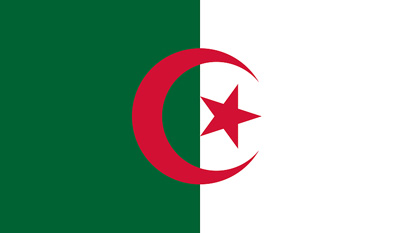Day 23
Algeria
Praise Points
National independence and self-determination after colonial struggle — the restoration of dignity for the Algerian people. Psalm 33:12 — “Blessed is the nation whose God is the Lord, the people He chose for His inheritance.”
Survival of Christian heritage (figures like Augustine) and continued—if small—Christian witness today, showing continuity across centuries. Isaiah 40:31 — “But they who wait for the Lord shall renew their strength…” encouragement for a people and tradition that has endured.
Prayer Points
Legal and administrative restrictions: Algeria’s regulations on non-Muslim worship and organizations create legal vulnerability for churches and for individuals accused of “proselytism.”
Social pressure and youth alienation (familial pressure, school bullying, emigration) prompt young people to conceal faith or to leave altogether. 1 Peter 4:12-3 — “Beloved, do not be surprised at the fiery trial… but rejoice insofar as you share Christ’s sufferings.”
Political instability and the legacy of the 1990s civil war left trauma, polarization, and distrust. Romans 13:1–2 reminds Christians about authorities and the need for just governance; communities suffer when governance is unstable.
A Call to Salvation
Advocate for equal legal protections and freedom of worship (responsible, non-partisan engagement with human-rights groups, diplomats, and domestic reformers). Micah 6:8 – act justly, love mercy, walk humbly. Participation in public life to defend the vulnerable is a biblical impulse.
Invest in family and youth discipleship (home teaching, affordable Bible study, youth groups that form identity and resilience). Deuteronomy 6:6-7 – teach children diligently. Spiritual formation at home and in small groups helps prevent generational faith loss.
Expand non-sectarian social services and bridge-building projects like health clinics, tutoring, and cooperative economic projects so that Christians are known for the common good and not only doctrinal differences. Luke 10:27–37 – the Good Samaritan model and neighborly care as public witness.
Algeria sits on the southern shore of the Mediterranean and is North Africa’s largest country. Its long history includes Phoenician and Roman cities, centuries of Amazigh (Berber) and Arab rule, Ottoman suzerainty, and 130 years of French colonization that ended after a hard-fought war of independence in 1962. Modern Algeria’s culture blends Arab-Islamic and Amazigh traditions, strong family and village ties, French linguistic and legal legacies, and the economic centrality of oil and gas. Political life is shaped by independence-era nationalism, one-party rule, and episodes of unrest that continue to influence social trust and civic life.
Christianity in Algeria returns to the Roman era (the province of Numidia). North Africa was an early center of Latin Christian thought; the most famous local figure is Augustine of Hippo (born in Thagaste, served as bishop at Hippo Regius — modern Annaba), whose sermons and books shaped Western Christianity for millennia. After the Arab-Islamic centuries, the Christian presence contracted; it reappeared in larger institutional form during French rule (Catholic dioceses, missions, and settler communities). After independence (1962), most European Christians left, and the modern Christian community is much smaller and mainly composed of Protestant congregations, foreign nationals, and a limited number of Algerian converts.
Young Algerian Christians — especially Algerian nationals who have become Christian — face several overlapping pressures: strong social and family expectations to remain Muslim; legal restrictions that criminalize some forms of proselytizing and tightly regulate non-Muslim organizations; occasional police raids, forced closures of meeting places, or harassment; social stigma and bullying at school; isolation because local Christian youth groups are small; and the broader insecurity and memory of violence from the 1990s that makes overt religious difference risky in some communities. International monitors document government restrictions and social pressure that raise particular risks for converts and for young people trying to live out a Christian identity publicly.


